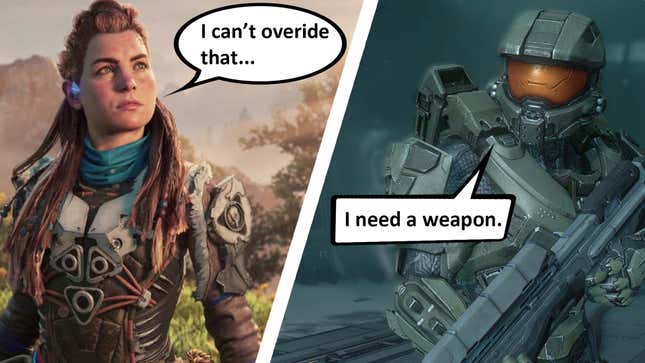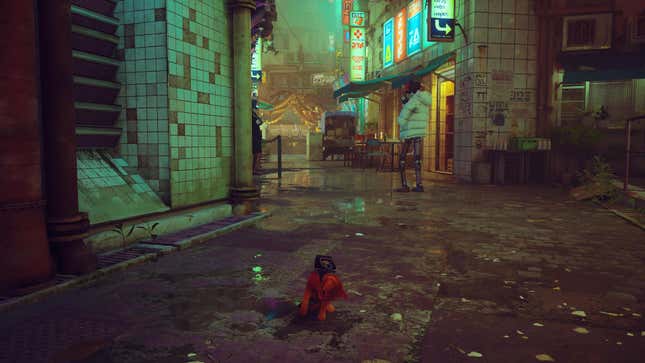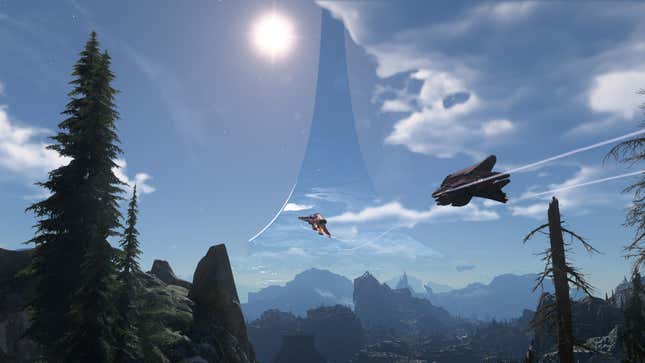
Two months ago, Sony reimagined PS Plus, its longtime membership program for PlayStation owners. Now, it looks a whole lot like Microsoft’s Game Pass: For roughly the same amount of money, both offer access to a Netflix-style games-on-demand library. Obviously, we had to stack the two services up against each other.
Price
Game Pass is available as a subscription for console, PC, or both. The two separated tiers cost $10 a month. Xbox Live Ultimate, which joins the two and provides access to the EA Play Library (a similar games-on-demand service) and Xbox Live Gold, costs $15 a month. There is no way to pay for multiple months or a year up front at a tiered markdown (at least officially).
PS Plus is also available for a subscription, but it gets very complicated very fast. There are two new tiers. The Extra is $15 a month, or $100 for the year, and offers free monthly games, online play, and a catalog of on-demand games including some of Ubisoft’s library. Premium is $18 a month, or $120 a year, and adds access to classic games, game trials, and cloud streaming for most of the games in the library. That’s a huge price difference, and while PS Plus Premium is more expensive month-to-month, it’s actually almost 50 percent cheaper if you commit to the whole year.
Winner: PS Plus
Streaming
Game Pass allows for cloud-streaming, provided you pay for the pricier Ultimate tier. The streaming functionality is technically still “in beta,” but it is for all intents and purposes up and running. Microsoft recommends internet speeds of at least 10mbps for mobile devices and 20mbps for consoles and PCs. Based on Kotaku’s testing, it’s…fine? Despite cloud gaming’s huge advancements recently, streaming still can’t compete with downloaded games. The latency, however minor, is unignorable. As such, cloud gaming is best used for puzzlers, chill RPGs, light platformers, and other games that don’t demand split-second reflexes.
Microsoft says “more than 100” games are currently streamable via cloud gaming on Xbox Game Pass, but more games are added every few weeks. Right now, the Game Pass library currently lists 381 games as capable of streaming.

To unlock streaming on PS Plus you need to buy the $18 a month tier. And even then, the streaming quality is nothing to write home about. At best, it’s as good as Xbox Cloud Gaming. Sometimes it’s worse. Roughly 320 games from the Premium library can be streamed on console or PC, and a good chunk of those are PS3 games and classics rather than the full PlayStation 4 library. For example, Marvel’s Avengers and Stray are available on console but not in the streaming library.
Most notably, you can’t stream PS Plus games to your phone. For now, the service relies on Remote Play, meaning you need a console to play on mobile and you must be on the same WiFi network.
Winner: Game Pass
Game Library
Of course, a games-on-demand service is only as good as the one thing it’s supposed to provide: games.
Right now, the Xbox Game Pass library has about 475 games, but that tally comprises the library across both tiers, including the 92 games currently part of EA Play. The main draw, of course, is that Microsoft puts its entire first-party portfolio on the platform. That also includes the major tent poles—like Halo Infinite and Forza Horizon 5, alongside forthcoming blockbusters like Starfield and Redfall—which become available the day they came out. Third-party games tend to stick around for a year at most, though some, like Rockstar’s open-world Hold ‘Em simulator Red Dead Redemption 2, become unavailable after a matter of months. It’s unpredictable.

The library also regularly cycles in third-party games and often serves as a launch pad for indie gems. This year alone, the twee Zelda-like Tunic, the snowboarding sim Shredders, and the puzzler-cum-dungeon-crawler Loot River all launched on Game Pass. (Here’s Kotaku’s list of the best under-the-radar games currently available.) Developers have acknowledged to Kotaku that debuting on Game Pass cuts into initial sales but is ultimately worth it for the tradeoff in publicity.
PS Plus Extra currently includes around 430 PS4 and PS5 games, while Premium adds another 395 from PS1, PS2, PS3 (streaming only), and PSP. While the classics are a nice bonus, the biggest draw by far are the PlayStation exclusives like Horizon Zero Dawn, God of War, Spider-Man: Miles Morales, and Bloodborne. Unlike Microsoft, Sony has committed to not putting its newest releases on the service day-and-date, and if Returnal arriving a year after release is any indication, it seems like a good bet that players will have to wait at least a year to 18 months before newer stuff appears.
There are plenty of strong contenders in the third-party department though. Games like Final Fantasy VII Remake, Prey, Control, Doom, and Tetris Effect are all present, as are indies like Celeste, Outer Wilds, Dead Cells, and Virginia. The library has plenty of diversity and was bolstered most recently from the same-day addition of Stray, which is already a 2022 GOTY contender. The Ubisoft component, led by Assassin’s Creed Valhalla is also a strong compliment. At the same time, Sony hasn’t yet demonstrated it is, or will be, as aggressive as Microsoft in courting a steady stream of third party day-and-date additions. There’s also no PC-exclusive portion of the library.
Winner: PS Plus
Ari: Going into this exercise, I totally imagined it’d paint a clear picture of Game Pass superiority, but these two services seem fundamentally identical to me—right down to the UI—with Sony’s new version of PS Plus marginally better in the few aspects that matter. The prices are mostly the same, but the option to pay for a year of PS Plus at a “discount” edges out Game Pass in that regard. Sure, Game Pass’ big draw is that it puts Microsoft’s first-party games on the service at launch, but…Microsoft barely has any first-party games out this year! Right now, that perk seems like little more than a marketing line.
Ethan: I also thought Game Pass would be the clear winner coming out of this, but now I’m conflicted as well. Not everyone can afford to pay for a full year up front, but it really changes the calculus in this matchup. There are some other key differences as well, and while I don’t think they make one a clear winner over the other, I do think it makes it easier to decide which you want to pay for. Want immediate access to a meaty back catalog of some of the biggest and best games from the last generation? PS Plus wins. Want to stay current on some of the best new games coming out every month and play them at any time on your phone? Then it’s Game Pass all the way.




